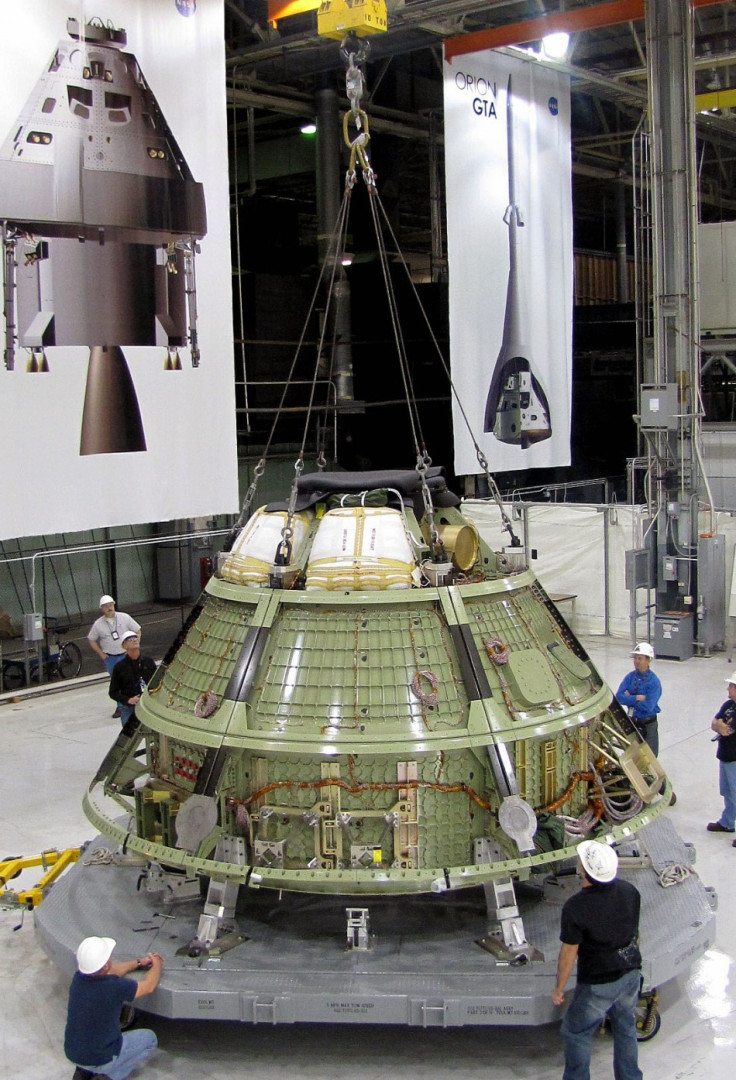Nasa Mars Mission Gets Boost: Orion Spacecraft to be Tested Real-Time in December 2014

US space research agency Nasa, which is currently engaged in researching possibilities of a manned mission to Mars, is aiming at a test expedition termed Exploration Flight Test-1 (EFT-1) with its Orion Spacecraft.
According to Nasa, the Orion multi-purpose crew vehicle will take off on its test flight in December this year. The spacecraft is expected to cover a distance of 5,790kms from the surface of the earth.
Orion is said to attain a speed of 20,000mph during its descent to the earth's atmosphere.
EFT-1 expedition will be monitored by engineers at the NASA Kennedy Space Center, and the December test flight of Orion will herald the beginning of a series of tests that are vital for the agency's Mars Mission. The next test in the series, Exploration Mission-1, is slated for 2017.
The results of Orion's first test flight will be used as input data for Nasa's ambitious manned crew Mars mission, which the space agency aims to launch at least by 2021.
Vital data such as temperatures, conditions and exposure to varying radiation levels would be closely monitored by Nasa during Orion's December test flight.
"At the speed it will be traveling, the temperature should reach almost 4,000 degrees Fahrenheit. At that same temperature, a nuclear reactor would melt down", states Nasa, on its official website.
With the EFT-1, Nasa also aims at testing Orion's Launch Abort System (LAS), which is a mechanism that is aimed at the safety of both the crew module and the astronauts aboard. However, the December flight of Orion will not have astronauts on board.
As Orion is equipped with a unique computer system that is said to be capable of processing 480 million instructions per second, the test flight will serve as the perfect opportunity for Nasa to check the computing capability of the spacecraft's computer chip.
According to Nasa, Orion's instruction processing capability is approximately 4,000 times faster than that of Apollo's computing capability.
© Copyright IBTimes 2025. All rights reserved.





















